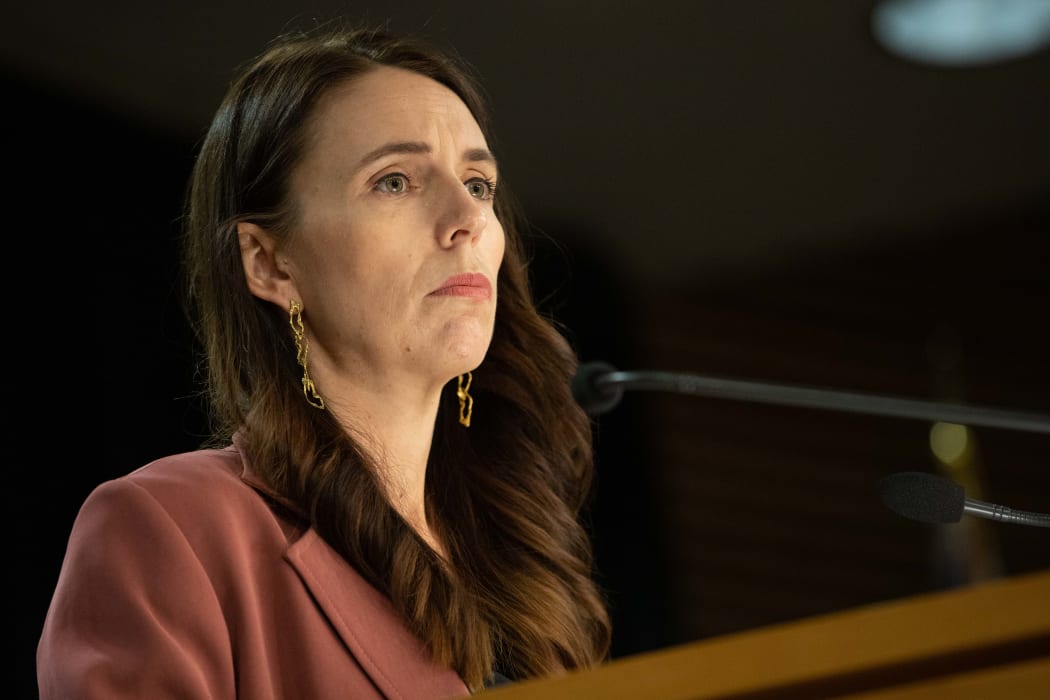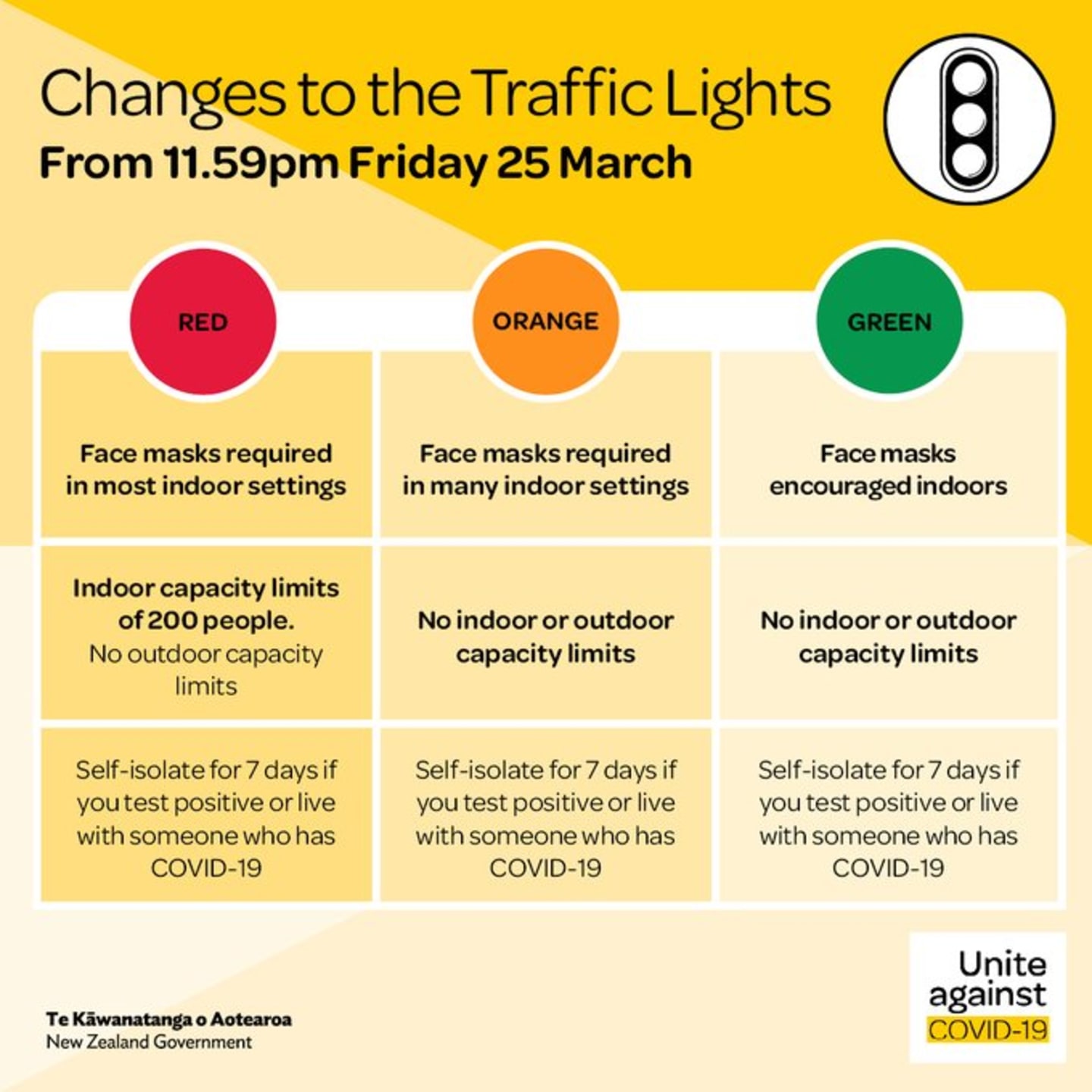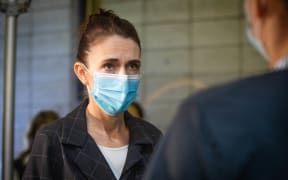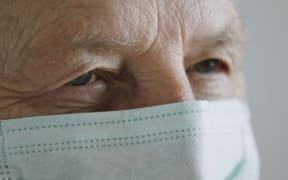The country will remain at the red Covid-19 traffic light setting, Prime Minister Jacinda Ardern says.
Ardern made the announcement at today's post-Cabinet media briefing from about 4pm.
She said the rolling average of cases had declined 36 percent in the two weeks since the government refined the traffic light system.
There had been early data showing an uptick since mid-March in people visiting places of retail and recreation in Auckland, as well as more people returning to workplaces, she said.
While cases were dropping in Auckland, Wellington and Tairāwhiti, others region like Canterbury, Northland and Waikato were not experiencing the same drop. Hospitalisations in some DHBs were not expected to peak until mid- to late-April.
"So for now, New Zealand will remain at red," Ardern said.
"I know there is an eagerness to move to orange, but we are still frankly amid an outbreak and there is still pressure across our hospital network."
Director-General of Health Dr Ashley Bloomfield said health officials would not be looking at a specific number of hospitalisations when advising a move down to the orange setting, but would rather be considering capacity and pressure levels, which also includes staffing at hospitals.
The next review of the traffic light settings will be on Thursday 14 April.

Jacinda Ardern. Photo: RNZ / Angus Dreaver
Ardern said the decision today was based on health advice, and the government did not want to move too quickly and lose the progress made.
"It's less about the case numbers and more about the hospitalisations."
Asked why Auckland could not move to orange when cases were falling, Ardern said while there was a decline in hospitalisations, "it is off a high base, the numbers are still relatively high, the pressure on our system is still there, we want to make sure that we're in the best possible position and we don't lose the gains we've worked so hard for".
"We've always said that there is the possibility of moving regions to different levels at different times ... but as we've said, Auckland has made significant progress but we do still have a relatively high hospitalisation rate."
"We need to look after our healthcare workforce."
The country needed to help the health system recover and be ready for the expected winter surge, Ardern said, requesting that people get boosted.
"Unvaccinated and people that are not boosted make up a disproportionate number of people in our hospitals. More than 9900 people are due their booster today, please get your booster as soon as you can."
Covid-19 Response Minister Chris Hipkins told Checkpoint there were a range of considerations Cabinet would have to take account of in its 14 April review.
"We're obviously looking at the overall trends ... how many new hospital admissions as well as those who are in hospital - but also the demographics," he said.
"We look at something called case weightings because not every hospitalisation is equal, some are in and out of hospital much quicker than others.
"If you think about it from an economic perspective only, the last thing I think people want to see is a sudden surge in cases which puts more people at home, more people having to isolate, because ultimately from a business perspective that's bad for business as well, it means fewer staff and fewer customers."
Bloomfield said the weight of advice from paediatricians and other child-health experts and epidemiologists suggested they thought New Zealand had done a good job in protecting children, including being among the first to bring in Covid-19 vaccinations for children.
Many DHBs had over 90 percent of Māori double vaccinated, and booster vaccination rates for Māori, Pacifica and others was very similar in the more vulnerable 65+ age groups, he said.
The Covid-19 vaccination programme - including its infrastructure, capacity, and capability - has been transferred across to help the population catch up on MMR and other vaccines, Bloomfield said.
He had received advice on a fourth Pfizer dose and that would be going to ministers very shortly, he said.
"The evidence is still emergent on this ... what I would say is that it's clear that it's most important for those high-risk groups."
Ardern said New Zealand's Covid-19 record still stood among the best in the OECD.
"No country has got away without being impacted by Covid but in New Zealand the impact on us has been less than most countries we compare ourselves to."
Meanwhile, Ardern said there "absolutely" was work under way to prepare for any new variants.
Aotearoa had a range of tools that had been kept "in the wings" should we need them, such as mandates, passes and the alert levels system.
Hipkins said the decision to keep New Zealand at red was not informed by the emergence of the new Covid variant XE, which will likely come across the border as it opens.
"We're tracking any emergence of new variants internationally very closely. So yes, that hasn't had an impact on this particular decision because the information there is still very new about new variants, but we're monitoring that very closely."
The National Party wants the traffic light system scrapped completely.
The prime minister told Morning Report vaccine mandates and the traffic light system had made a big difference but said the first Omicron peak had passed in parts of the country.
She warned it was only the first wave of Omicron and there would be more waves and new variants coming.
Ardern said precautions that were known to be effective in preventing the spread of Covid-19, such as mask use and gathering restrictions, would continue to be required, even if it was decided that parts of the country could move to the orange setting.







